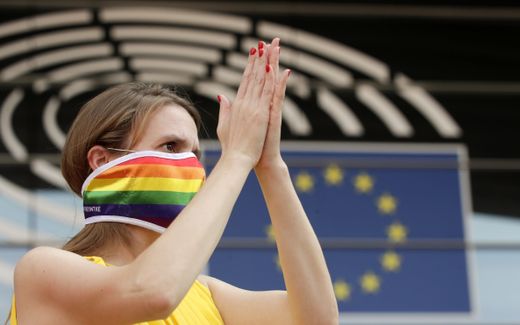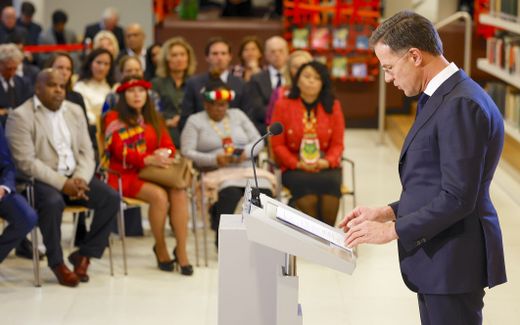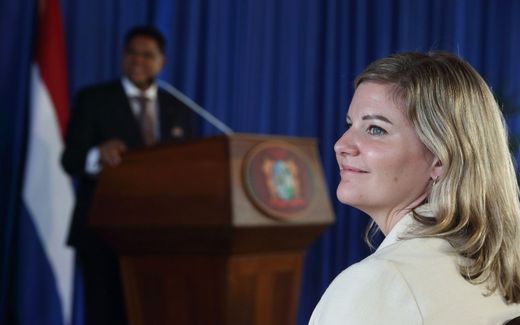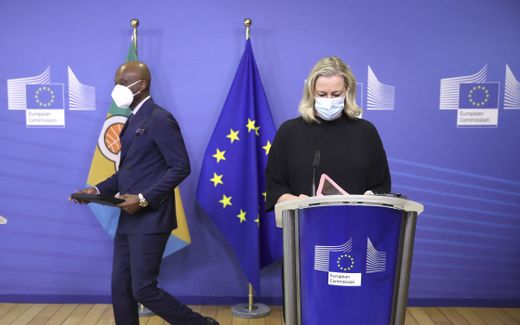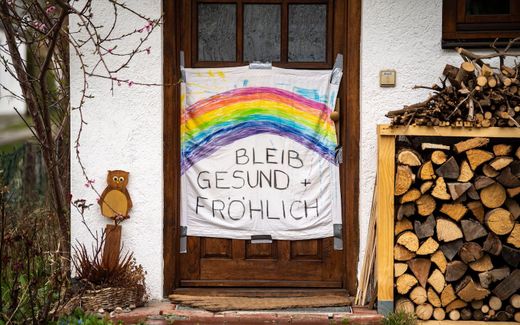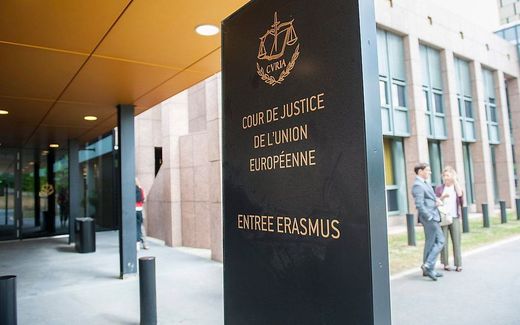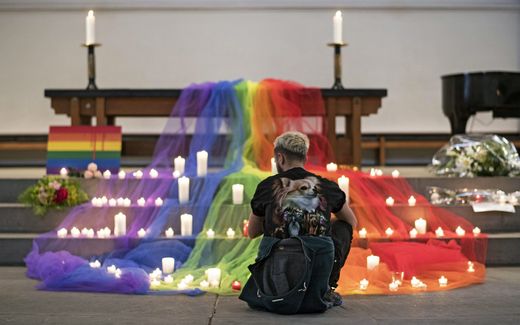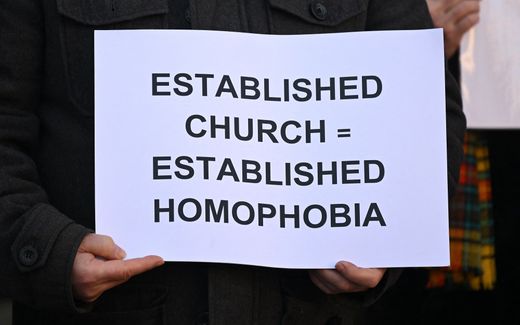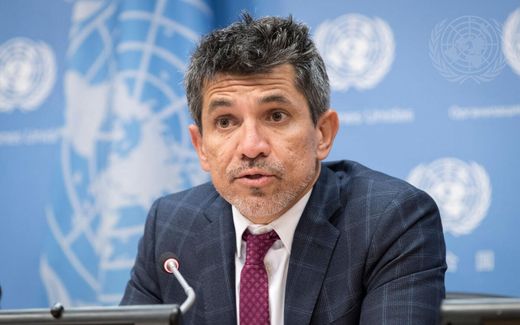Dutch government tries to implement emancipation goals around the world
11-12-2023
Western Europe
Gerard Vroegindeweij, RD
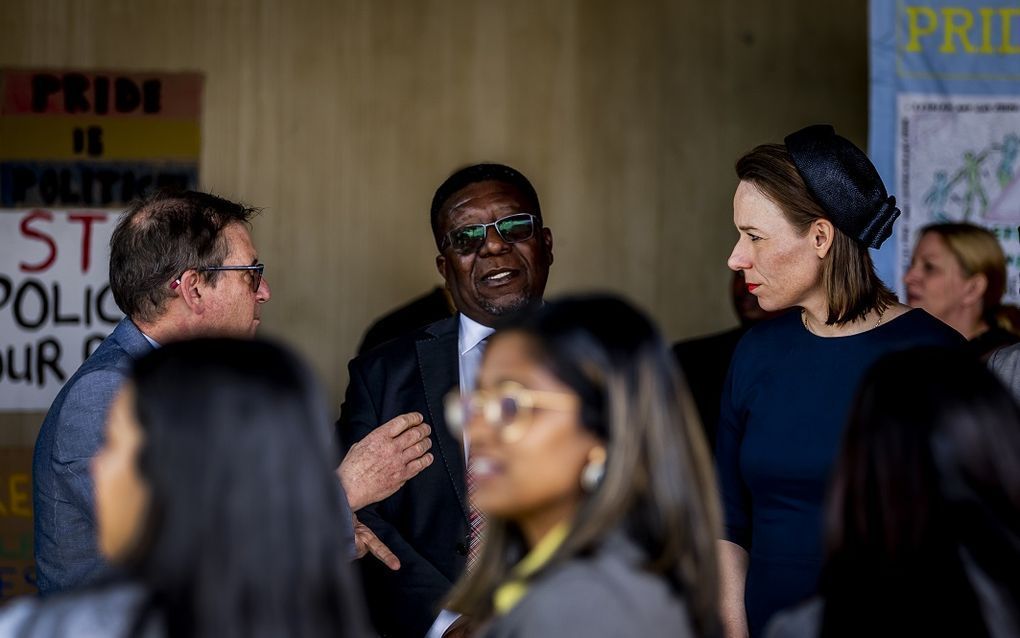
Dutch Foreign Minister Hanke Bruins Slot during a visit to South-Africa. Photo ANP, Remko de Waal
Western Europe
For the government of the Netherlands, the emancipation goals are not only for the people of Holland but the world. Clearly, the agenda is ideologically driven. It is not only about equality for men and women but it has to do with gay emancipation too in Europe and worldwide. And it is openly against "conservative counter forces".
"The Netherlands is part of a free European Union with open borders. As a result, national ambitions on gender equality and equal rights for LGBT persons must also be reflected in –compliance with– hard, clear and ambitious European and international agreements on these human rights." That writes the responsible minister for Emancipation Affairs, Robbert Dijkgraaf, in the paper "Emancipation: a task for us all".
To achieve that goal, the cabinet is implementing, among others, what is known as the feminist foreign policy (FBB). Foreign Affairs Minister Bruins Slot (Christian Democratic CDA) and colleague Liesje Schreinemacher for Foreign Trade and Development Cooperation (Liberal VVD) are taking the lead in this. Emancipation minister Dijkgraaf is looking over their shoulders.
In his emancipation memorandum, Dijkgraaf explains in detail what the FBB entails. "This means that the Ministry of Foreign Affairs pays even more attention to equality in a general sense, gender equality in particular, including LGBT, within all foreign policy areas."
In a letter sent to the House of Representatives a year ago, ministers elaborate on feminist foreign policy. Under the FBB, the government is taking steps to counter violence against women, including domestic violence and honour killings. Attention is also paid to women who are disproportionately victims of sexual violence in disaster and conflict zones. These are issues on which there is broad political agreement.
Abortion
But the government is also using the policy to roll out the Dutch emancipation agenda to the rest of the world. One of the first things the ministers name in the letter is that 1.2 billion women "do not have access to abortion".
The right to abortion and access to contraception falls under the 'sexual and reproductive health and rights' (SRHR). These are, according to Minister Schreinemacher, "essential for sustainable development because of their link to gender equality and women's well-being, their impact on maternal, newborn, child and adolescent health."
The minister stated, "SRHR are human rights. The right to the highest attainable standard of health includes gender equality in health and sexual and reproductive health. The essence of reproductive rights is freedom of choice. Human rights are universal, meaning that freedom from discrimination and violence applies to all, regardless of gender or sexual orientation."
Thorn
Earlier, the Dutch daily Reformatorisch Dagblad revealed that Holland paid an average of more than 250,000 so-called abortion services in poor countries over the past five years. This includes abortions, abortion prevention and mother-child care. More than half a billion euros was involved in this in 2022. That is four times as much as development cooperation allocates to education.
A thorn in the side of the ministers is further that care duties and other unpaid (domestic) work "all over the world fall mainly on the shoulders of women, thus preventing equal opportunities in the labour market, equal financial and economic position or wealth accumulation".
This feminist foreign policy comes with a big pot of money. With a budget of 510 million euros (2021-2025), the so-called Dutch SDG5 Fund is one of the largest funds in the world in the field of women's rights and gender equality.
Although the name feminist foreign policy does not suggest it, for the government it also includes the emancipation of all non-heterosexual persons. In the papers, women's emancipation and the emancipation of the LGBT community are often mentioned in the same sentence.
Conflict
As part of its feminist foreign policy, the Netherlands organised, among other things, a conference to counter sexual violence in conflict zones. This was prompted by the war in Ukraine. Furthermore, last year the Netherlands sent a gender expert with the Dutch delegation to the UN climate summit for the first time.
And there is more to come. According to the ministry, there remains room for further improvement in concreteness. The ministry is working on a practical handbook for civil servants and a manual "Equal rights, equal opportunities for LGBT persons" intended for Dutch embassies and consulates.
How seriously the Netherlands takes this emancipation agenda was shown a few months ago when minister Schreinemacher decided to reduce cooperation with Uganda because the African country's president had passed legislation to curb the expression of homosexuality. The Netherlands is stopping cooperation on law enforcement projects. However, the cabinet continues to actively support gay protection.
Progressive Minister Sigrid Kaag wrote in 2021, in her capacity as Foreign Minister, that she used the creation of a new EU trade treaty to force abortion and gay propaganda on developing countries. The ministers literally wrote in 2021: "During the negotiations, the Netherlands worked hard to ensure that human rights, including sexual and reproductive health and rights (SRHR) and the non-discrimination principle, were firmly embedded were firmly embedded in the partnership agreement."
Overseas territories
The cabinet also sets its sights on the Dutch overseas territories. "In the autonomous countries Curaçao, Aruba, Sint Maarten (CASt) of the Kingdom and in the Caribbean Netherlands Bonaire, Sint Eustatius and Saba (BES), commitment to gender equality, acceptance and equal rights for LGBTIQ+ persons is undiminished," Dijkgraaf said.
Thus, the government is working to continue the Pink Orange Agreement for CASt and BES. Among other things, this should lead to the establishment of a gay interest organisation in the overseas territories. This organisation should advocate for equal rights, acceptance and guidance for the local LGBT community.
The State Secretary for Kingdom Relations, Alexandra van Huffelen, is to try on behalf of the cabinet to promote same-sex marriage in autonomous countries within the kingdom (CASt).
Undermining forces
The foreign ministers denounce conservative countries and forces criticising international agreements on gender equality and equal rights for LGBT persons. The government wants to act with like-minded countries and bring the progressive emancipation agenda to men and women.
In his note, Dijkgraaf refers to those who think differently from the Dutch cabinet as "undermining forces". And these the minister wants to counter.
This article was translated by CNE.news and published by the Dutch daily Reformatorisch Dagblad on December 5, 2023
Related Articles

